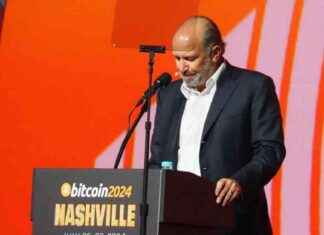Sacyr intends to increase its presence in Anglo-Saxon countries to 33% compared to the current 20%
MADRID, 19 Feb. (EUROPA PRESS) –
The CEO of ACS, Juan Santamaría, has highlighted the company’s commitment to digital markets, defending being the world’s first builder for the largest hyperscalable companies, such as Google, Meta or Amazon.
During his speech at the IX National Congress of Civil Engineering of the College of Civil Engineers, Canals and Ports, the manager clarified that ACS is not only dedicated to more traditional infrastructures such as railways, airports or highways, but also to new digital businesses.
In this sense, in addition to data centers for large technology companies such as Microsoft, Apple, Google, Meta or Amazon, he has also mentioned other sectors such as the manufacturing of batteries for LG, Sony or Tesla, among other multinationals.
The company chaired by Florentino Pérez has also become, as defended by its CEO, the first non-trading mining company in the world, working with giants such as Río Tinto or BHP in Australia, Asia, Latin America, the United States and Canada.
Regarding public-private collaboration in Spain, Santamaría has warned that the current moment is “critical”, with 650 pending green hydrogen, ammonia and methane projects, more than 850 GW of digital infrastructure projected or 12,000 million euros in plans destined for semiconductors in Spain.
“All of this requires integration and structuring that requires maximum public-private collaboration, but also because all countries are in competitive mode. We are not an island. You go to any country in Europe, also in the United States or Asia, and this debate is on the table,” he argued.
For his part, the CEO of Sacyr Engineering and Infrastructure, Pedro Sigüenza, also present at the event, has announced that one of the objectives that the company will establish in its next strategic plan will be to concentrate a third of its activity in each of the European, Latin American and Anglo-Saxon markets, compared to the current 40%, 40% and 20%, respectively, that is, growing in the latter market to the detriment of the other two.
Sigüenza has regretted that in Spain there is no commitment to the concession model, a business from which 90% of its profitability margin comes from around the world. Furthermore, he believes that it is a model that would contribute to solving the talent deficit problem in Spain.
“We are in a country where there are no concessions, which is a shame. We need a minimum portfolio to be able to train our young people, this talent, motivate them and then export them, as we have done with great success abroad,” he added.







